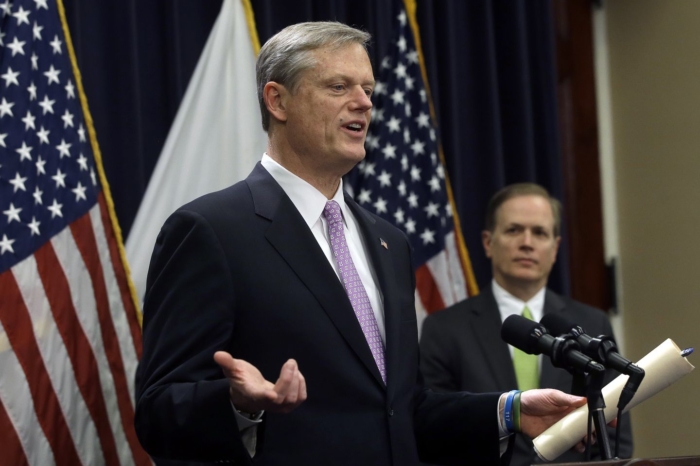Tell state & school leaders to ensure our kids get a quality education this fall!
/0 Comments/in News /by Editorial Staff Share on Facebook
Share on Twitter
Share on
LinkedIn
+
As the coronaviruscontinues in Massachusetts this fall, the education of our children should be atop priority for our state & school district leaders. Many schools didn’tcontinue rigorous instruction during the shutdown.
They didn’t provide dailyschedules, take attendance or ensure daily interaction between teachers andstudents – as a result, our kids lost a third of their academic year.
MA state &district leaders are making school re-opening plans now, that could includeat-home schooling and hybrid options in the fall.
Sign the petition below and tell them that our kids need to continue to learn even if they’re not in a school building.
View our additional education resources:

Pulitzer Winner Kai Bird on Robert Oppenheimer & the Atomic Bomb
Mr. Bird focuses on the life and legacy of J. Robert Oppenheimer, “father of the atomic bomb.” He discusses Oppenheimer's impact on history, his early life and education, and his academic achievements in quantum physics. Bird covers Oppenheimer's political views, relationships, as well as his leadership in the Manhattan Project and his role in the Trinity test.

Georgetown’s Dr. Marguerite Roza on Federal ESSER Funds & the Fiscal Cliff
Dr. Roza explores the complexities of education finance and its impact on American K-12 education. She outlines the three phases of school funding over the past 40 years and their effect on equity and student achievement. She highlights that only about half of the K-12 education dollars reach student instruction, with significant funds absorbed by the ever-expanding education bureaucracy.

Harlow Giles Unger on Patrick Henry & American Liberty
Mr. Unger delves into the life of Patrick Henry as the country celebrates the Fourth of July. He explores Henry's early life, his rise as a lawyer and political figure, and his fiery opposition to British policies. Mr. Unger highlights Henry's famous "Give me liberty, or give me death!" speech and his influential role as governor of Virginia, underscoring his enduring legacy in helping forge American independence. In closing, he reads a passage from his book, Lion of Liberty: Patrick Henry and the Call to a New Nation.

Prof. Joel Richard Paul on Daniel Webster, U.S. Senate, & “Liberty and Union”
Prof. Joel Richard Paul discusses the statesman Daniel Webster, highlighting his reputation as the "conscience of New England" and one of America's greatest orators. Prof. Paul shares that Webster, despite a modest upbringing, became a leading attorney whose arguments in landmark U.S. Supreme Court cases shaped constitutional law.

Steven Wilson on Charter Public Schools
Mr. Wilson delves into his extensive background, including his tenure at Pioneer Institute, his work with Governor Bill Weld, and his contributions to the landmark 1993 Massachusetts Education Reform Act. Steven shares insights into the high academic expectations and success of Boston's charter schools, emphasizing the importance of recruiting and retaining quality teachers and principals.

Sheldon Novick on Henry James, American Women, & Gilded-Age Fiction
Mr. Novick discusses the complexities of Henry James’ life and writing career, highlighting his significant literary contributions, the influence of his family's intellectual legacy, and the realistic portrayal of social tensions in his works. Novick explores Henry James’ life experiences that shaped his novels like The Portrait of a Lady and The Golden Bowl.

USAF Academy’s Jeanne Heidler on Henry Clay & Congressional Statesmanship
Dr. Heidler discusses Henry Clay's legacy as a seminal figure in American history. She covers Clay's early life, his transformation from a Virginia farm boy to a leading statesman, and his being mentored in the law by Founding Father, George Wythe.
 https://pioneerinstitute.org/wp-content/uploads/TLC-Shiloni-05292024-767x432-1.png
432
767
Editorial Staff
https://pioneerinstitute.org/wp-content/uploads/logo_440x96.png
Editorial Staff2024-05-29 16:14:072024-05-29 16:27:34Israeli Harvard Student Maya Shiloni on Campus Antisemitism
https://pioneerinstitute.org/wp-content/uploads/TLC-Shiloni-05292024-767x432-1.png
432
767
Editorial Staff
https://pioneerinstitute.org/wp-content/uploads/logo_440x96.png
Editorial Staff2024-05-29 16:14:072024-05-29 16:27:34Israeli Harvard Student Maya Shiloni on Campus Antisemitism
Kimberly Steadman of Edward Brooke on Boston’s Charter School Sector
Steadman reflects on her educational background and leadership in urban charter public schools. She discusses the importance of rigorous academic expectations for K-12 students, and how this outlook influences her educational philosophy co-directing the Brooke charter school network. Ms. Steadman shares the challenges faced by Massachusetts charters due to the post-2016 ballot loss, and how she and other charter public school leaders advance supportive policy reforms.

Cheryl Brown Henderson on the 70th Anniversary of Brown v. Board of Education
Cheryl Brown Henderson, daughter of the lead plaintiff in the landmark U.S. Supreme Court decision, Brown v. Board of Education, explores her family's pivotal role in the Brown case, detailing her father’s part within the NAACP's wider legal strategy.

POLITICO’s Peter Canellos on Justice John Marshall Harlan & Plessy v. Ferguson
Mr. Canellos delves into Harlan's upbringing in a prominent slaveholding family, his Civil War service in the Union Army, and his rapid rise in Kentucky politics as a Republican. He highlights John Harlan’s mixed-race half-brother Robert Harlan and key legal precedents like the notorious Dred Scott v. Sandford (1857), which influenced Harlan's views on race and equality.

Colonel Peter Hayden on U.S. Cyber Command & National Security
General Counsel of U.S. Cyber Command, Colonel Pete Hayden, shares insights about growing up in western Massachusetts, attending law school, his military service, and emphasizes the legal aspects of his national security work. Col. Hayden discusses Cyber Command's mission, distinguishing it from the NSA, while stressing the importance of defending the nation in cyberspace.



